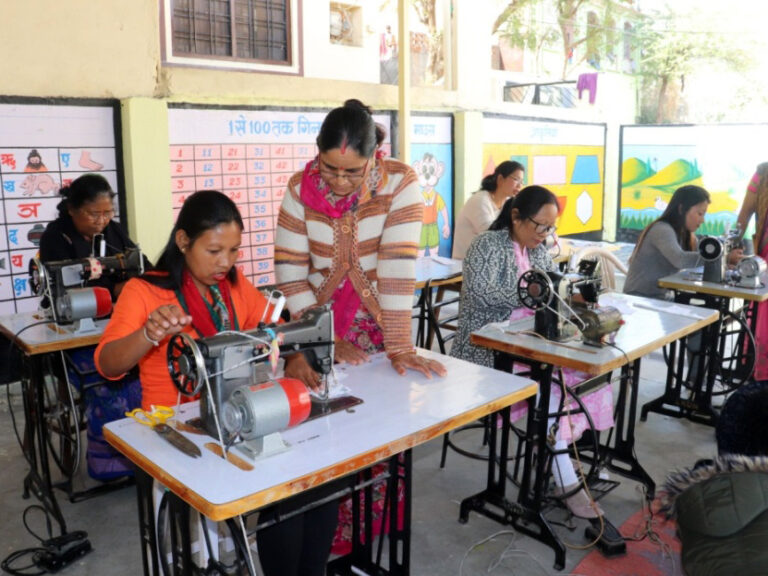Menstrual health and Uger Cloth pads

Uger Training Centre

Workshop in progress

Awareness Workshops
Beliefs and practices around menstruation affect a menstruator’s self-image and self-esteem, her health and well-being, and her position in society. In resource poor communities, cloth
harvested from old garments are methods that are used to manage menstrual flow. While cloth is safe and hygienic, there are many negative practices around managing menstrual cloth that can potentially cause infections. Additionally, the raw materials in the products do not decompose – instead the material breaks down into microscopic elements and enters water ways.
With these cultural and other reasons, a strong need was felt for awareness about disposable sanitary products that are acceptable and affordable. The Uger Project was started in 2011 –
“Uger” means “new beginnings” in the Mewari language of South Rajasthan. This is a movement focusing on breaking silence around the subject of menstruation, promoting menstrual health and combating the growing use of disposable products and bringing back respect to reuse. This has been done by the design and development of Uger reusable cloth products.
- Training programmes and workshops are routinely conducted to raise awareness and
break silence around menstruation - The project helps a women’s group to earn a supplementary income for their families by stitching.
- It includes men in menstruation who are otherwise marginalized
- It helps women perceive and talk about and manage menstruation positively, connecting
- with their bodies to make healthy choices and care for the environment.
We have a centre , Uger Training Centre, located at the Neemach Kheda Basti at Udaipur
More than 10,000 adolescents have received training. In addition, 915 of Jatan’s staff members have been trained through various initiatives. The program has also benefited over 1,000 university students and more than 1,000 staff members from other NGOs, strengthening capacities across diverse groups.
